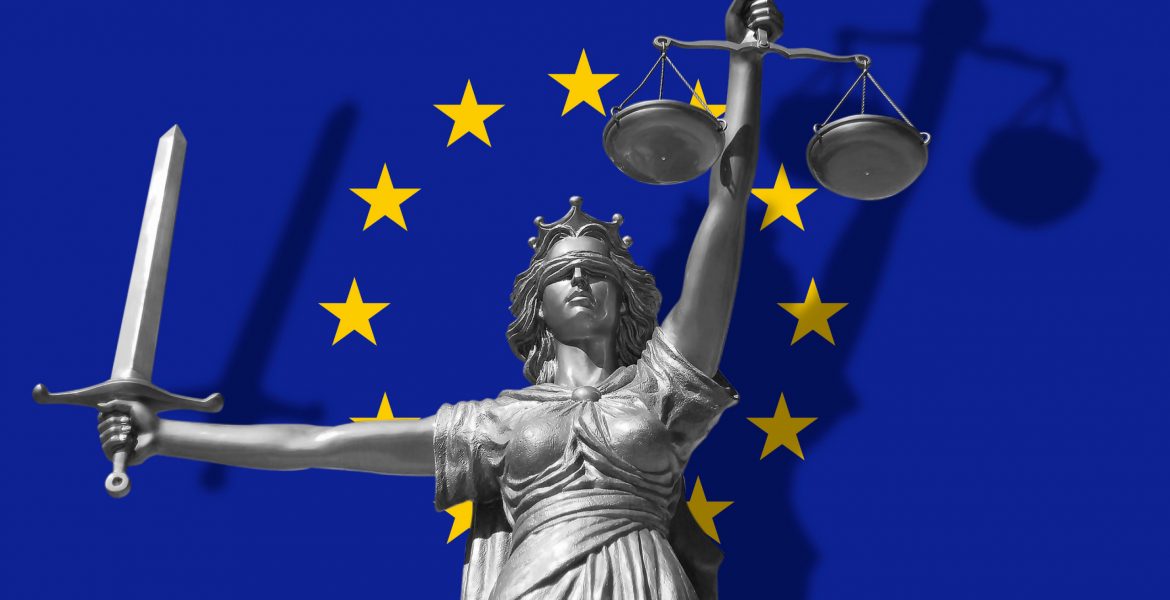The conference on Fundamental Rights and Rule of Law held by the European Economic and Social Committee brought into light serious violations and negative trends in the four areas covered by the European Rule of Law Mechanism (justice, corruption, media, checks and balances). The EESC stressed that civil society is a dynamic actor in defending this fundamental principle of the EU.
The conference entitled Civil society perspectives on the European Rule of Law Mechanism organised by the EESC’s Fundamental Rights and Rule of Law (FRRL) Group, was held on 4 November. It offered space for dialogue amongst stakeholders which contributed to the FRRL Group country visits carried out in 2020-2021 and to the first two Rule of Law Reports published by the European Commission.
The president of the EESC’s FRRL Group Cristian Pîrvulescu, underlined the role of civil society: “We do not turn to the representatives of civil society for the ‘sake of the principle’, we listen to civil society because its contribution is essential to these crucial issues”.
The EESC has played its part by adopting a number of opinions, hearings and reports in the last two years, in its effort to contribute to a “joint culture of the rule of law” called for by the Commission.
Along the same lines, Giulia Barbucci, EESC’s Vice-President, affirmed that reversing current negative trends in in the protection of the rule of law passed through civil society: “EU legal and political responses cannot stand alone. We must also better engage civil society actors as they are the bridge between the expectations of the general population and institutions”.
Florian Geyer, from the Commission’s DG JUST, and a keynote speaker of the event, considered that “The rule of law is essential for the effective function of our internal market and a thriving economy for fostering jobs and growth”, adding that the rule of law was necessary for the protection of all the other European values, fundamental rights and democracy.
However, the current health crisis and measures taken by authorities have amplified the challenges already existing in this field. Inequalities and discrimination have increased, while civic space has further shrunk and pressure on journalists has increased. The Commission Rule of Law Report has highlighted these negative trends, but also some positive developments in certain Member States.
Gašper Dovžan, State Secretary of Foreign Affairs in Slovenia, stated: “Respect for the rule of law should never be subjected to a dilemma or become a victim of any crisis. We have to continue the debate on the rule of law, but it needs to be repeatedly stated that any restrictive measures that have to be taken, have to be reasonable, limited in time and proportionate”.
Nevertheless, “there is still a lot to be done and a long way to go” as Matthew Caruana Galizia, from the Daphne Caruana Galizia Foundation, said. His mother, Daphne Caruana Galizia, a Maltese journalist, was murdered while investigating corruption, money laundering and organised crime. “My mother is unfortunately a good example of how failings in the rule of law and widespread corruption are not victimless crimes, the murder shutters that perception into thousand pieces”.
After more detailed discussions of the four pillars of the European Rule of Law Mechanisms in parallel sessions, participants reconvened to discuss the lessons learned and future perspectives. There was agreement that the rule of law was vital for the functioning of the EU as a whole, including for its credibility, resilience and mutual trust.
As Debbie Kohner, from the European Network of National Human Rights Institutions (ENNHRI), summed up, all four pillars covered by the European Rule of Law Mechanism – justice system, media freedom and pluralism, anti-corruption frameworks, and other checks and balances – are intertwined. National Human Rights Institutions monitor trends and show how an erosion of standards in one area creates a deterioration in the other.
Nicole Romain, from the EU Fundamental Rights Agency (FRA) also stressed that all institutional actors should make better efforts to communicate fundamental rights and the rule of law in a way that they are truly accessible to the general population.
Eszter Nagy, from the European Federalists (UEF) insisted that to truly defend rights and the rule of law for all, when it came to some governments, dialogue was insufficient. As many other participants in the conference, she considered that it was high time for the EU to make full use of all its tools, starting with rule of law budget conditionality.
Calling for a strong action as he concluded the event, Cristian Pîrvulescu, said: ” The attack on the rule of law and fundamental rights was initially an attack on human rights and then became an attack on NGOs. Finally, it became an attack on institutions of the rule of law and on democracy itself”.
The EESC’s FRRL Group will continue to advocate for fundamental rights and rule of law by taking action in cooperation with civil societies in all Member States, notably through country visits and their subsequent country visit reports.




